1.Complex of works on Vietnamese history,Ho Chi Minh Prize for Science and Technology in 1996
* The group of works on Vietnamese history (5 sets, 8 volumes) includes the author's works - published from 1956 to 1978 - which are highly appreciated for containing many new discoveries, presenting convincing, scientific viewpoints on Vietnamese history.
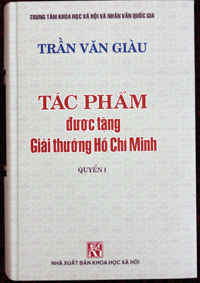
* Author: Professor, People's Teacher Tran Van Giau (1911-2010)
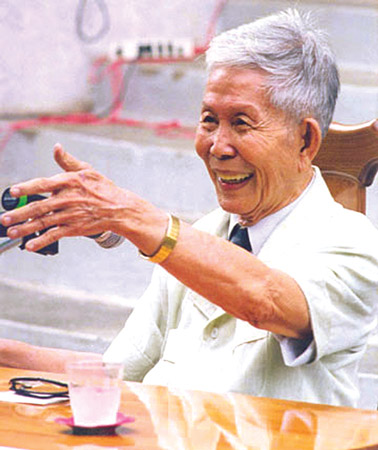
Hometown: Long An; Recognized as Professor in 1955; Awarded the title of People's Teacher in 1992; Awarded the title of Hero of Labor in 2003.
Working time at the school: 1956-1960; Working unit: Faculty of History; Management position: Former Head of Faculty of History, Hanoi National University, Secretary of the Party Committee of Hanoi National University (1956).
Main research directions: Anti-colonialism movement in Vietnam; History of the Vietnamese working class; History of Vietnamese thought in modern times.
Typical scientific works:Fight against invaders(3 episodes),Construction Publishing House, Hanoi, 1956-1957;Modern history of Vietnam(4 volumes, co-written), Education Publishing House, Hanoi, 1959-1963;The Vietnamese working class from the founding of the Communist Party to the successful revolution(3 volumes), History Publishing House, 1962-1963;The South holds the citadel firmly(A brief history of the Southern people's struggle against the US and its henchmen) (5 volumes), Social Sciences Publishing House, Hanoi, 1964-1970;The development of Vietnamese thought from the 19th century to the August Revolution(3 volumes), Social Sciences Publishing House, Hanoi, 1996-1997.
2.Eastern thought suggests points of reference,Ho Chi Minh Prize for Science and Technology in 1996
* ConstructionEastern thought suggests points of referenceis the result of the author's meticulous expression and long process of contemplation on Eastern thought. The work has profound and philosophical interpretations, discussing 3 major topics:
+ “Totalism and Particularism, two forks in Eastern and Western philosophy” with issues such as the tragedies of identification, the totalist and particularist methods of thought; The question of ontology.
+ “Vietnamese Thought from Tradition to Innovation” includes issues such as: Le Quy Don and the theory of Qi; Vietnamese Thought under Tu Duc; Nguyen Truong To's innovation theory; a working hypothesis in the process of contemplating the national ideological agenda.
+ “Lecture outline of ancient Chinese philosophy” includes issues such as Ancient Chinese society and thought; Confucius; Lao Tzu; Mozi; Mencius; Zhuangzi; Xunzi…
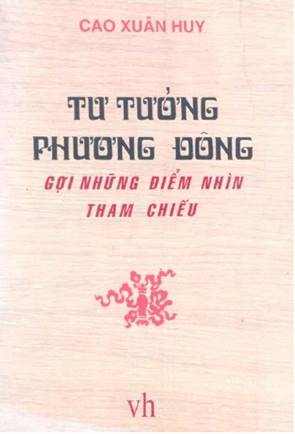
* Author: Professor Cao Xuan Huy (1900-1983)
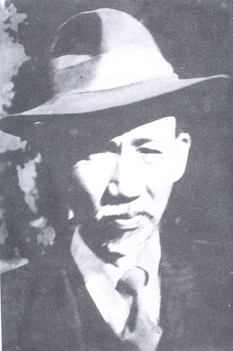
Hometown: Nghe An; Graduated from Indochina Pedagogical College in 1922; Recognized as Professor in 1965.
Working time at the school: 1954-1957; Working unit: University of Letters (1954-1956), Faculty of Literature, Hanoi National University (1956-1957).
Main research directions: Eastern Philosophy, Logic, Psychology.
3. The cluster of works includes 4 research works onFolkloreandVietnamese folk culture,Ho Chi Minh Prize for Science and Technology in 1996
* This complex of works includes 4 works:
- “Folklore”, 2 volumes, published in 1972, 756 pages thick, is a textbook on folklore for students of the Faculty of Literature, Hanoi University, edited by the professor. The book deeply and comprehensively explains the characteristics of folklore, presents the history of collecting and researching folklore in Vietnam, researches Vietnamese folklore according to the historical process besides analyzing it by genre.
- “On the way to study folk culture”, published in 1989, includes 7 chapters. Chapter 1 raises issues for folk literature research, defines folk culture. Chapter 2: Formation of Folklore. Chapter 3: Folk culture is a composite art. Chapter 4: Main elements of folk culture, folk expressive art, folk linguistic art. Chapter 5: Folk cultural activities. Chapter 6: Major issues of Folklore. Chapter 7: The role of Vietnamese Folklore today in the cause of building a new culture, a new people.
- “Vietnamese folk culture in the context of Southeast Asia”, published in 1993, 167 pages, discusses 3 major contents: Vietnamese folk culture in the process of Southeast Asian culture; similarities between Vietnamese folk culture and folk culture of other Southeast Asian countries; unique features of Vietnamese folk culture
- “Vietnamese folk culture with the development of Vietnamese society”, published in 1995, includes 5 chapters. Chapter 1 raises the following issues: The topicality of folk culture research; Folk culture in relation to the cultural environment in rural areas; Village festivals and their aesthetic values; Inheriting and promoting the values of folk culture in rural areas of our country today. Chapter 2 raises the following arguments: Village is the most important setting of folk culture; village conventions are an important expression of folk culture in the countryside. Chapter 3 raises the following issues: Village festivals and foreign religions; Village festivals with indigenous beliefs; Social and cultural significance of village festivals.
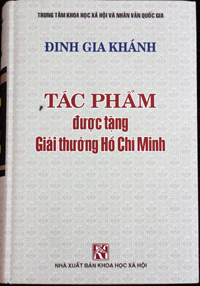
* Professor Dinh Gia Khanh (1924-2003)
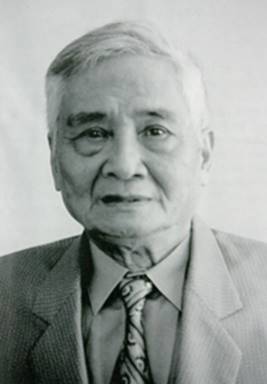
Hometown: Thai Binh; Recognized as Professor in 1980.
Working time at the School: 1956 - 1983; Working unit: Faculty of Philology, Hanoi National University; Management position: Head of the Department of Folklore, Ancient and Modern Vietnamese Literature (Faculty of Philology) (1956-1983), Director of the Institute of Folklore Studies, National Center for Social Sciences and Humanities (now the Institute of Cultural Studies, Vietnam Academy of Social Sciences) (1983-1988), Editor-in-Chief of the Folklore Magazine, Institute of Folklore Studies (1983-1992).
Main research directions: Cultural studies; Folk culture; Folk literature.
Typical scientific works:Vietnamese folk literature(editor-in-chief), Education Publishing House, 1962;Ancient Vietnamese Literature, Education Publishing House, 1964;Folklore(2 volumes, editor-in-chief), University and Vocational High School Publishing House 1972 - 1973, reprinted 1977, 1991;Preliminary study of fairy tale problems through the story of Tam and Cam, Literature Publishing House;Vietnamese Literature (10th century - first half of the 18th century)(co-authored), University and Vocational High School Publishing House, 1971.
4.The cluster of works includes 8 research works on Vietnamese and world literature.,Ho Chi Minh Prize for Science and Technology in 1996
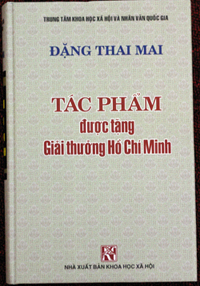
* Professor Dang Thai Mai (1902-1984)
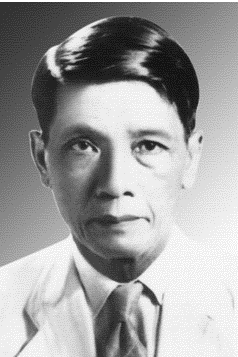
Hometown: Nghe An; Graduated from Indochina Pedagogical College in 1928; Recognized as Professor in 1957.
Working time at the school: from 1954-1960; Working unit: University of Literature, Faculty of Literature (Hanoi Pedagogical University and Hanoi National University).
Management position:Minister of Education (1946-1947); Chairman of Thanh Hoa Resistance Committee (1947-1948); Director of the Department of Education of Inter-Zone IV, concurrently Director of University Preparatory and Advanced Pedagogy of Inter-Zone IV (1950-1953); Principal of the University of Literature (1954-1956); Chairman of the Vietnam Literature and Arts Association (1957); Head of the Faculty of Literature, Hanoi University of Science and Pedagogy (1956-1960); Director of the Institute of Literature (1960-1976).
Main research directions: Vietnamese Literature and Chinese Literature from the 18th century to the mid-20th century; Cultural Studies and History.
Typical scientific works:Literary theory, Han Thuyen Publishing House, 1944;Lecture on Lament of a Soldier's Wife, Ideological Publishing House, Thanh Hoa, 1949;History of Modern Chinese LiteratureTruth Publishing House, 1957;On the path of study and research, Volume 1, Literature Publishing House, 1959; Volume 2, 1965; Volume 3, 1973;Dang Thai Mai's selected works, Literature Publishing House, 1978.
5.Cluster of Vietnamese historical and cultural works,Ho Chi Minh Prize for Science and Technology 2000
* The cluster of Vietnamese historical and cultural works includes the following 4 works:
- “Outline of Vietnamese Cultural History”. This is the first comprehensive history book on the culture of the Democratic Republic of Vietnam. The author uses a dialectical materialist view of history to refute the absurd, erroneous, and distorted statements that feudal, bourgeois, and colonial historians used to deceive the people.
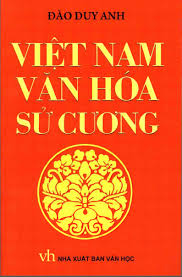
- “History of Vietnam from its origins to the 19th century” (2 volumes, 1955), consisting of 56 chapters, divided into 5 parts. The work presents 10 pages of chronology, 4 illustrations of ancient cultural vestiges, 3 maps of the country through the Tang, Tran - Ho, Tay - Han dynasties, 1 map of ancient vestiges of Bac Son and Hoa Binh people. The author uses throughout the historical research method based on searching for documents to explore Vietnamese history.
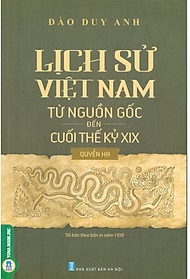
- “Ancient History of Vietnam” (4 volumes, 1955) discusses the following issues: The origin of the Vietnamese people and the Giao Chi issues: Viet people and Bach Viet people; Bach Viet people and the resistance against the Qin army; The formation of Au Lac country; Dong Son culture or Lac Viet culture; Cultural status of Lac Viet people; Trieu Da's invasion - The problem of Trieu Da's invasion, the problem of the location of the district statue; The invasion of the Han Dynasty - Giao Chi - Cuu Chan - Nhat Nam; Legends about the ancient history of our country.
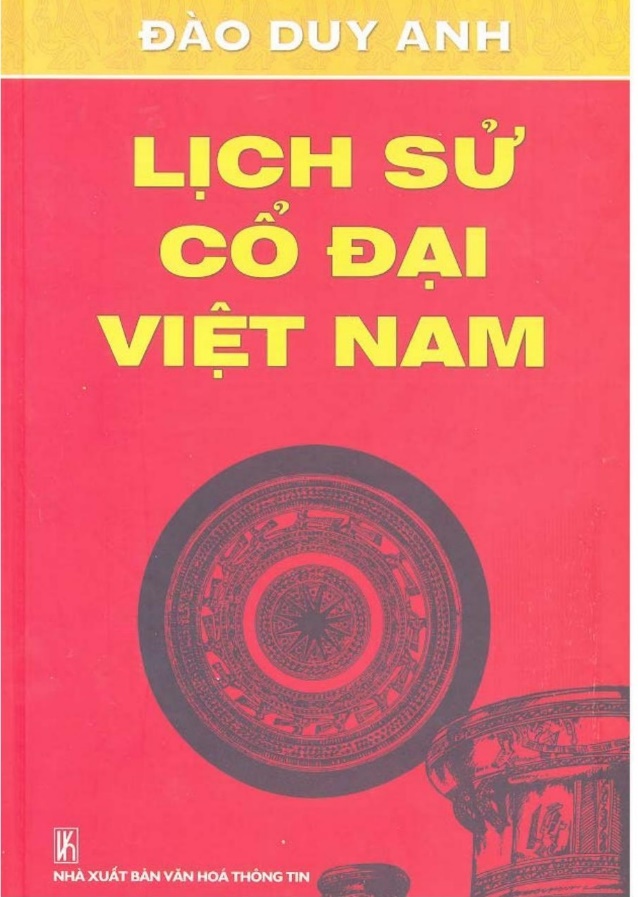
- “Vietnam through the Dynasties” (232 pages, 1964) discusses the following issues: Van Lang Country; Au Lac Country; Au Lac Country under the domination of the Han Dynasty; Au Lac Country under the domination of foreign tribes during the Three Kingdoms and the Two Jin Dynasties; Au Lac Country under the domination of the Southern and Northern Dynasties; Our country under the domination of the Sui and Tang Dynasties; Our country's territory in the early stages after the period of restoration of autonomy; Our country's territory during the Dinh and Le Dynasties; Our country's territory during the Ly Dynasty; Dai Viet Country during the Tran and Ho Dynasties; Changes in administrative geography during the Ming Dynasty; The differences in administrative geography during the Le and Nguyen Dynasties; Vietnam's provinces during the Nguyen Dynasty; The expansion of territory to the South during the Ly, Tran, Ho, and Le Dynasties; An overview of our country's territory.
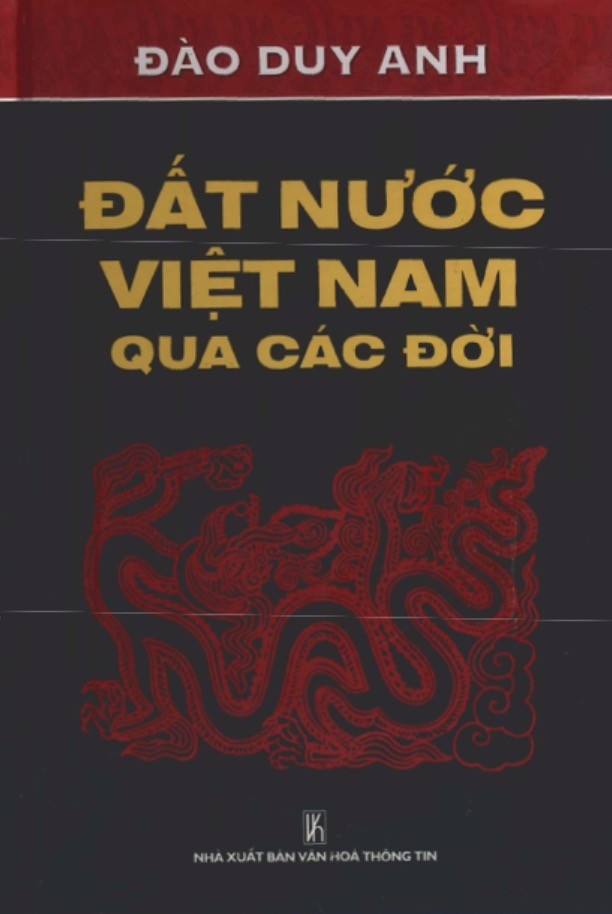
* Author: Professor Dao Duy Anh (1904-1988)
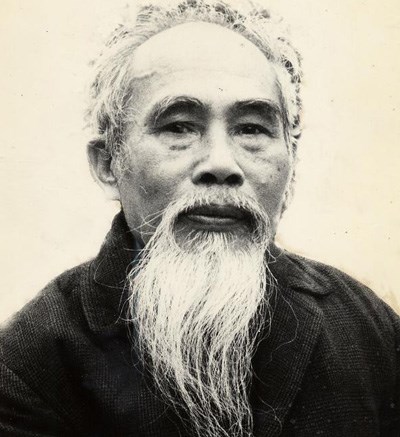
Hometown: Thanh Hoa; Graduated from Hue National School in 1923; Major: History; Title: Professor.
Time working at the School: 1956 - 1958; Working unit: Vietnamese Ancient History Group, later Department of Ancient and Medieval Vietnamese History (Faculty of History).
Management position: Former first Head of the Department of Ancient and Medieval Vietnamese History (Faculty of History).
Main research directions: Lexicography, History and history of Vietnamese culture, Cultural studies.
Typical scientific works:Chinese - Vietnamese dictionary, Hanoi, 1932;French - Vietnamese Dictionary, Hanoi, 1936;Outline of Vietnamese cultural history,1938;History of Vietnam from its origins to the end of the 19th century, Hanoi, 1956;Ancient Vietnamese History, Hanoi, 1957;The problem of forming the Vietnamese nation, Hanoi, 1957;Vietnam through the ages, Hanoi, 1964.
6.Vietnamese grammar and history cluster,Ho Chi Minh Prize for Science and Technology 2000
* The Vietnamese grammar and history group includes 3 works:
- “Vietnamese grammar - compound words, short phrases” is a collection of lectures on modern Vietnamese grammar for students majoring in languages, Faculty of Literature, Hanoi University of Science, from 1961 to 1969. Words, compounds, and short phrases are three key areas of Vietnamese grammar, which have been researched and explained scientifically and accurately by the author until now (although the terminology about them has changed a bit).
- “Vietnamese phonetics history textbook" is a research work on the development of Vietnamese phonetics based on modern phonetic theory, in relation to related languages such as Ede, Khmer, and Chinese phonetics.
- “Origin and formation process of Han-V reading"viet" is a research work on the birth of Sino-Vietnamese reading, considered from the origin.
The works in the Cluster of Works all contain profound insights, proposals for new approaches, valuable new interpretations of research issues, and suggestions for the development of Vietnamese linguistics.
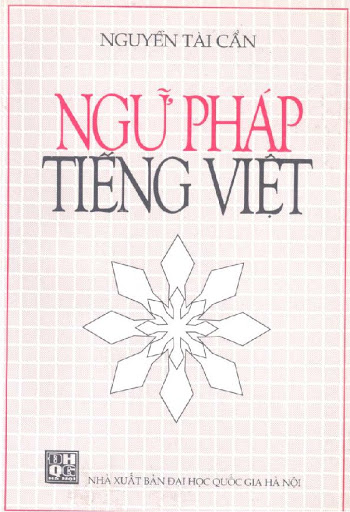
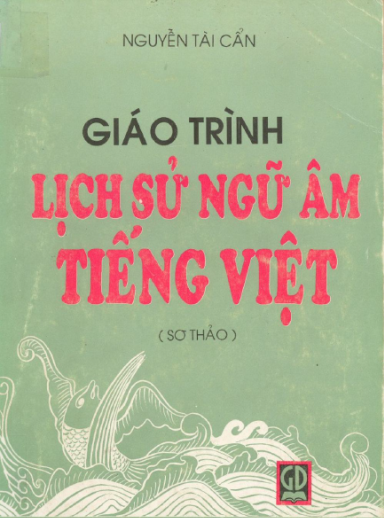
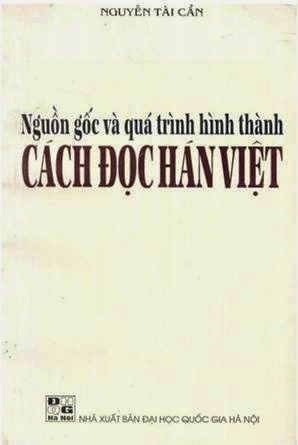
* Author: Prof. Dr. People's Teacher Nguyen Tai Can (1926-2011)
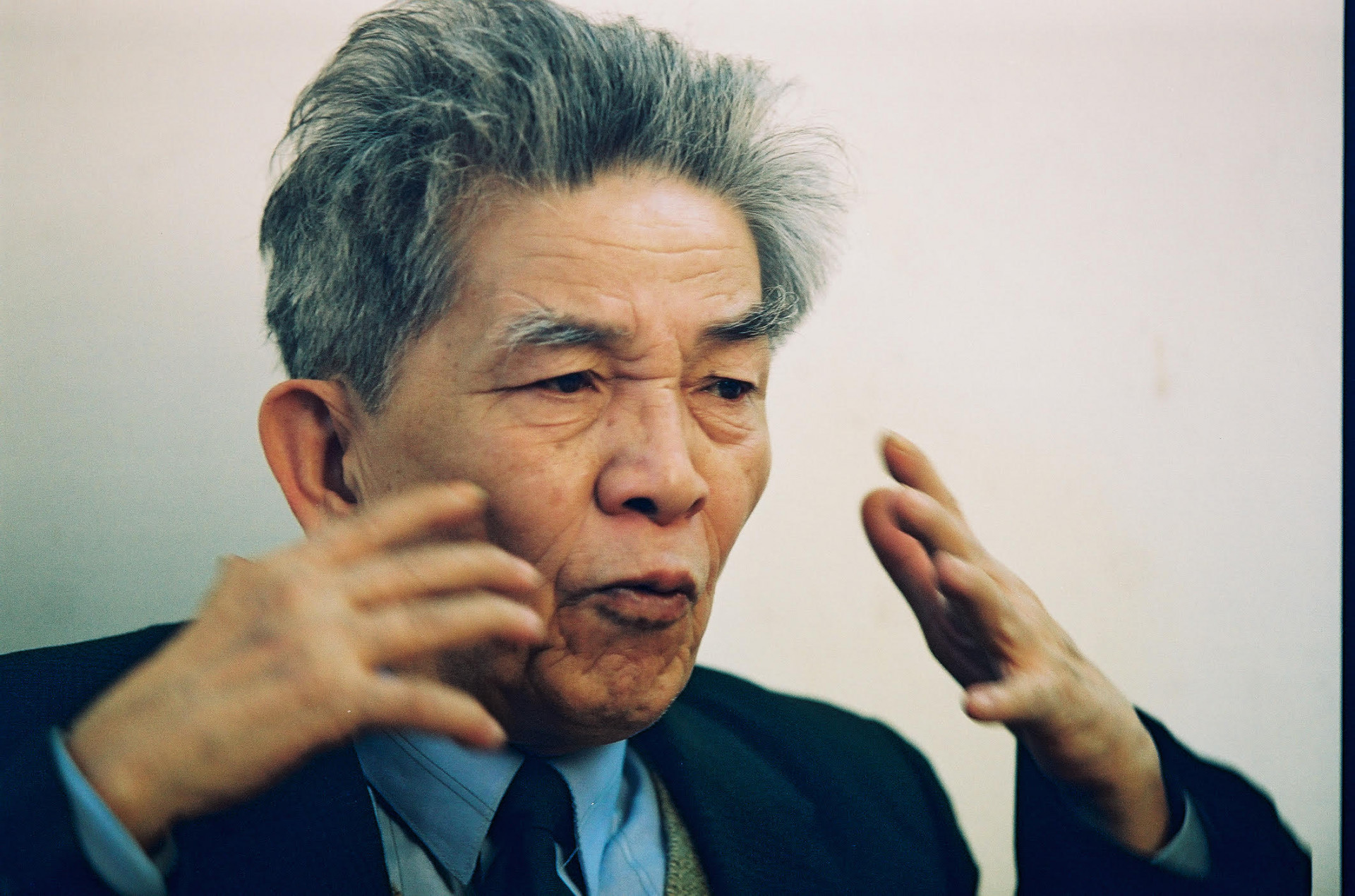
Hometown: Nghe An; Received Vietnam's first Associate Doctorate in Literature in the Soviet Union in Linguistics in 1960; Recognized as Professor in 1980; Awarded the title of People's Teacher in 2008.
Time working at the school: 1961-1971; Working unit: Faculty of Literature, Hanoi National University.
Management position: Head of Linguistics Department, Faculty of Philology (1961-1971).
Main research directions: Vietnamese grammar; Nom and national language research; Vietnamese history and dialects.
Typical scientific works:Noun Class in Modern Vietnamesei, Social Sciences Publishing House, 1975;Vietnamese Grammar: Words – Compound Words – Short Phrases,Publishing HouseUniversity and Vocational College, 1975; Hanoi National University Publishing House reprinted (many times);Origin and formation process of Sino-Vietnamese reading, Social Sciences Publishing House, 1979; Hanoi National University Publishing House reprinted (many times);Some issues about Nom script,University and Vocational Training Publishing House, 1985;Vietnamese phonetic history textbook (draft),Education Publishing House, 1995.
7. ProjectFinding the origins of language and consciousness,Ho Chi Minh Prize for Science and Technology 2000
* The work “Searching for the origin of language and consciousness” by Professor Tran Duc Thao was published by the Social Publishing House in Paris in 1973. The work answers the question of where consciousness and language originate from and when they began. The work has researched the following issues: directive action as the original form of consciousness; mixed language; the origins of the Oedipus crisis (sexual desire). From there, it is affirmed that the origin of consciousness is from language and social labor.
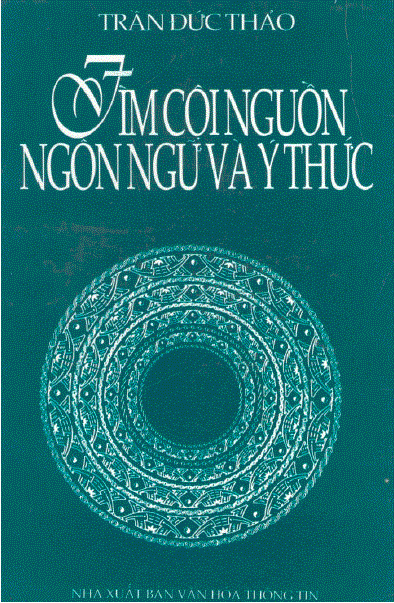
* Author: Professor Tran Duc Thao (1917-1993).
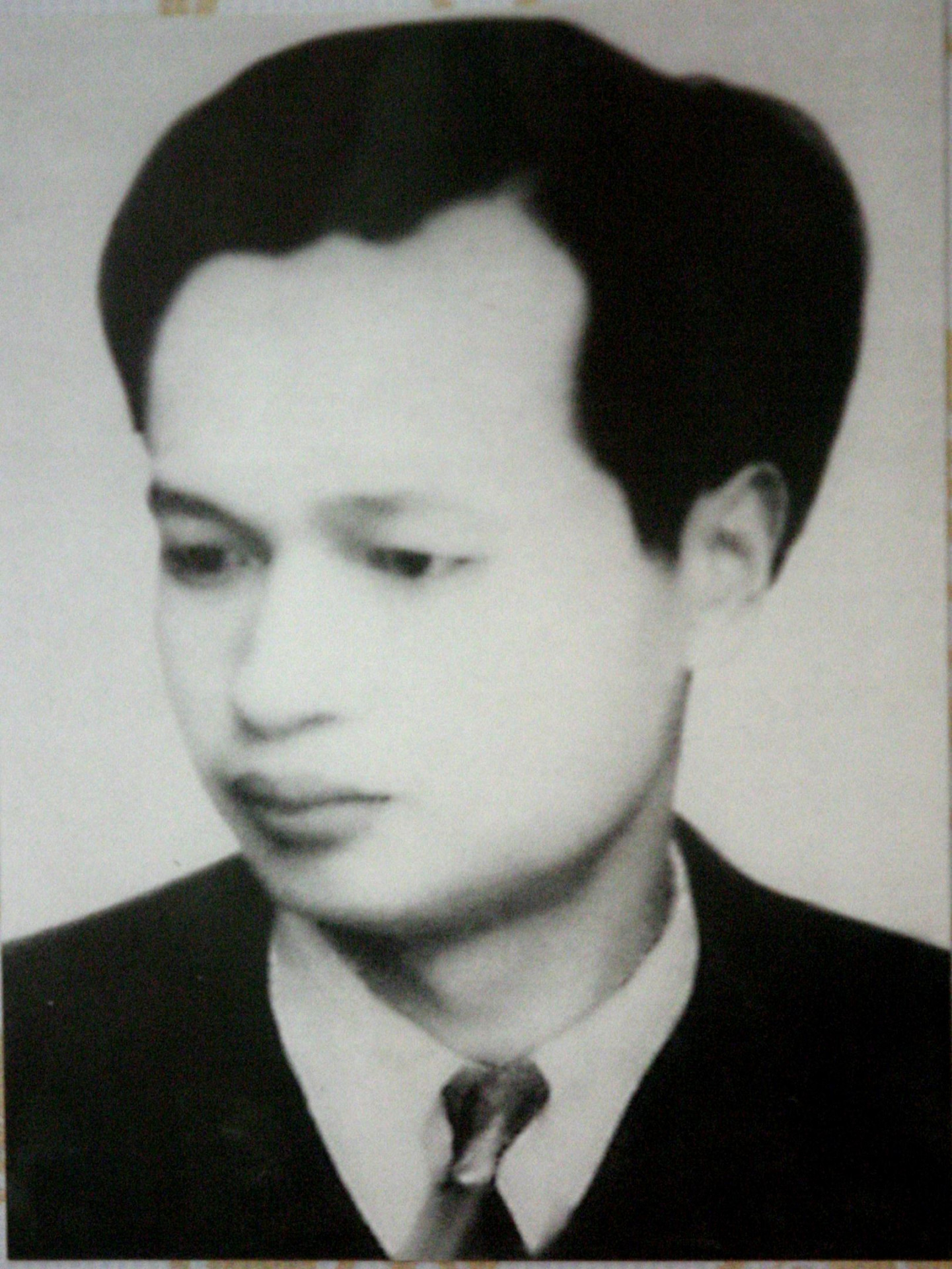
Hometown: Bac Ninh; Graduated from the Baccalaureate in 1935; Received a Master's degree in Philosophy from the Pedagogical College of d'Ulm (France) in 1945; Recognized as Professor in 1957.
Time working at the school: 1954-1957; Management position: Vice President of the University of Pedagogy (1954); Head of the History Department, Hanoi University of Science (1956-1957).
Main research directions: Philosophy, application of philosophy in research on historical and social issues of the 20th century; Anthropology; Religious studies...
Typical scientific works:Phenomenology and Dialectical Materialism), Minh Tam, Paris, 1951;Finding the origins of language and consciousness(in French), French Social Publishing House, 1973;Phenomenology and Dialectical Materialism, Hanoi National University Publishing House, 2004;The formation of man, Hanoi National University Publishing House, 2004;History of ideas before Marx, Social Sciences Publishing House, 1995.
8.ProjectFollowing the footsteps of ancient cultures,Ho Chi Minh Prize for Science and Technology 2000
* The bookFollowing the footsteps of ancient cultures is a collection of typical articles by the author to study each archaeological period: Stone Age, Metal Age and Historical Age. Research and explain about ancient cultures in Vietnam from Son Vi culture to Hoa Binh culture, Bac Son culture... Thereby helping readers see clearly the changes of Vietnamese culture as well as culture in the Southeast Asian region.
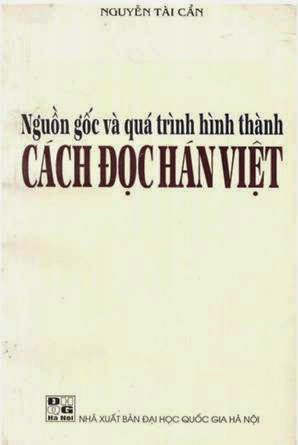
* Professor, People's Teacher Ha Van Tan (1934-2019)
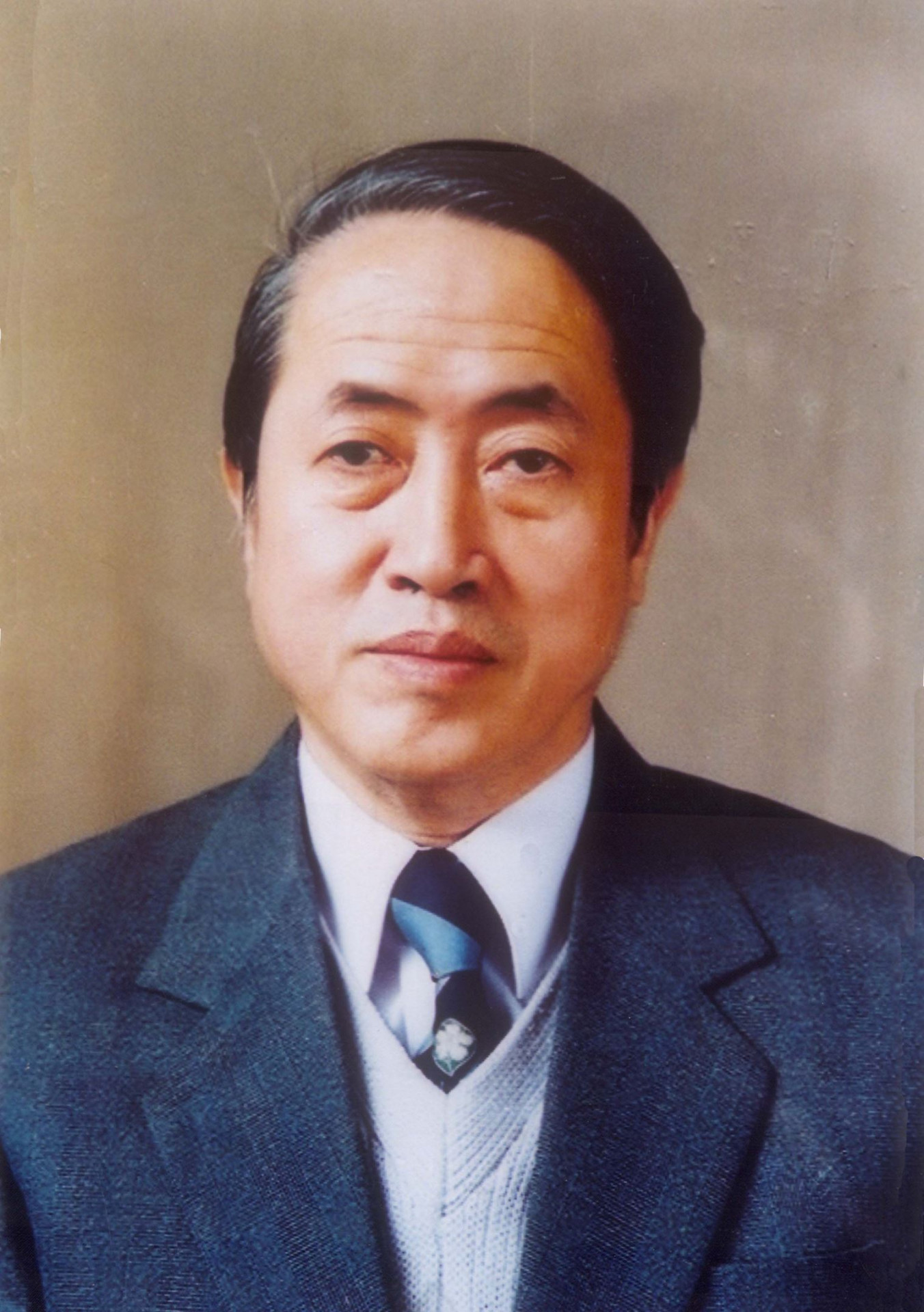
Hometown: Tien Dien commune, Nghi Xuan district, Ha Tinh province; Graduated with a degree in History from Hanoi Pedagogical University in 1957; Recognized as Professor in 1980; Awarded the title of People's Teacher in 1997.
Time working at the School:1957 - 1998; Working unit: Faculty of History; Management position: Head of Department of Historical Methodology, Faculty of History (1982 - 2009), Director of the Institute of Archaeology (Vietnam Academy of Science and Technology) (1988-2008).
Main research directions: Archaeology, Ancient and Medieval Vietnamese History, Historical Theory, Linguistics, Buddhism, History of Thought, Cultural Studies, Linguistics, Anthropology, Textology.
Typical projects:History of the primitive communist regime in Vietnam, Education Publishing House, Hanoi 1960;History of Vietnamese feudal regime,Volume 1, Education Publishing House, 1960; reprinted 1963;The resistance war against the Yuan-Mongol invasion in the 13th century,Social Sciences Publishing House, 1968; reprints: 1970, 1972, 1975;Following the footsteps of ancient cultures, Social Sciences Publishing House, Hanoi, 1997;Some historical theory issues,Hanoi National University Publishing House, 2007.
9.Construction cluster:Vietnamese culture - traditional and modernincluding the following projects:Vietnamese Culture - Research and Contemplation;Vietnam - a geographical and cultural perspective;On the land of thousands of years of culture, Ho Chi Minh Prize for Science and Technology 2010
* The cluster of works has introduced cultural theories in general and specific issues of Vietnamese culture and Thang Long - Hanoi culture in particular; reflecting quite comprehensively the aspects of Vietnamese culture such as: the process of Vietnamese culture, folk culture issues (folklore, festivals, cuisine, legends, etc.), cultural contact and exchange, art, behavior, celebrities, cultural history of Thang Long - Hanoi... The cluster of works contributes to laying the foundation for the use of interdisciplinary research methods in studying Vietnamese culture - a young science in the field of Social Sciences and Humanities. More specifically, the cluster of works provides orientation in studying Vietnamese culture in the context of contact with Southeast Asian and East Asian cultures in particular and foreign cultures in general; providing perspectives and research on Vietnamese cultural identity, elements of Vietnamese culture; the combination of history, geography, culture in studying regions and areas in the whole country.
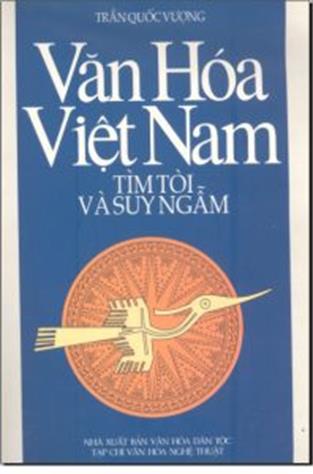
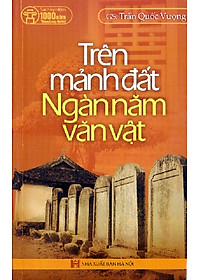
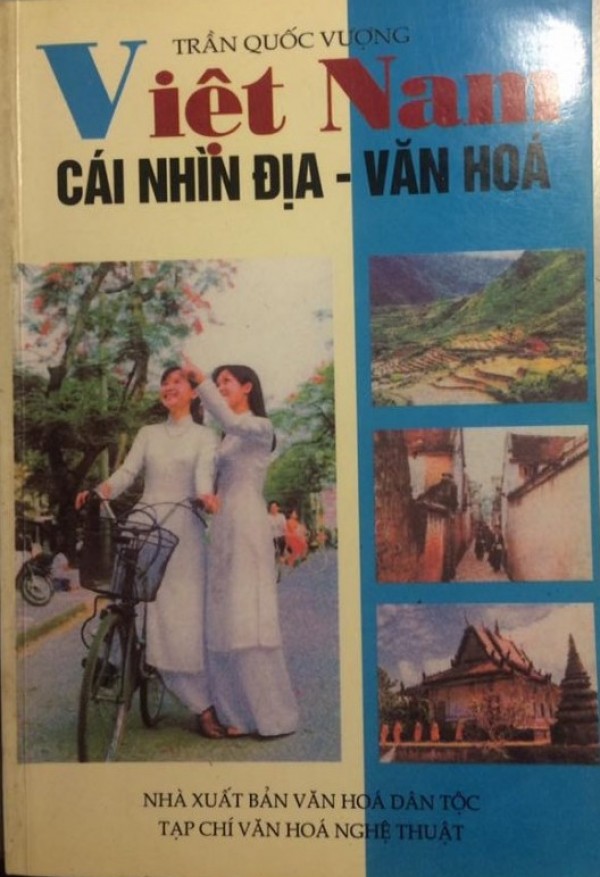
* Author: Professor, Meritorious Artist Tran Quoc Vuong (1934-2005)
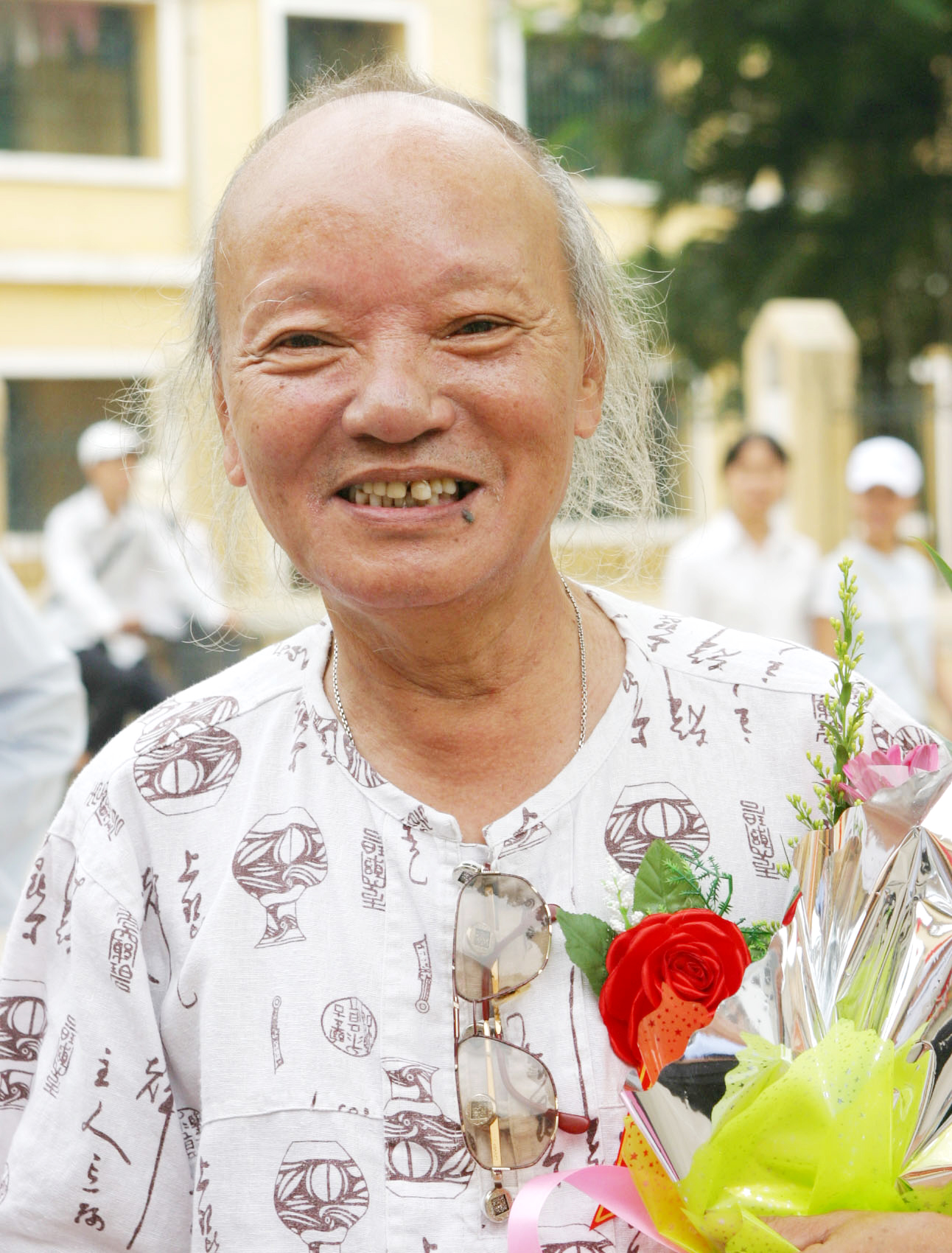
Hometown: Ha Nam; Graduated with a Bachelor's degree in History from the Faculty of History, Hanoi University of Science in 1956; Recognized as Professor in 1980; Awarded the title of Excellent Teacher in 1990.
Working at the school: 1956-2005; Working unit: Faculty of History; Management position: Head of the Department of Archaeology (Faculty of History) (1980-1993), Director of the Center for Intercultural-Historical Research (University of Social Sciences and Humanities) (1980-1993), Head of the Department of Cultural Studies of the General University (VNU) (1980-1993), Head of the Department of Vietnamese Cultural History (now the Department of Cultural Studies and Vietnamese Cultural History, Faculty of History) (1998-2005).
Main research directions: Archaeological cultures in Vietnam; Historical and cultural process of Vietnam; Cultural contact and exchange; Culture and environment (natural, social, humanities).
Typical scientific works:Primitive communist regime in Vietnam(co-authored), Education Publishing House, 1960,Vietnam cultural perspective, National Culture Publishing House, Hanoi, 1998,On the land of thousands of years of culture, Hanoi Publishing House, 2000,Vietnamese culture of exploration and contemplation, Culture and Arts Magazine, Hanoi, 2000,Hanoi as I understand it, Institute of Religious Studies, Hanoi, 2005.
10. Construction cluster:Ho Chi Minh's literary and journalistic career and some theoretical and practical issues of Vietnamese culture and arts.Ho Chi Minh Prize for Science and Technology 2010
* The project cluster includes:
+) Group of works 1: Ho Chi Minh's literary career, Ho Chi Minh's journalism (special thesis)
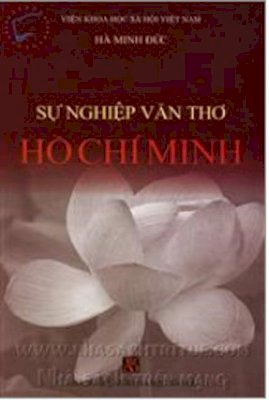
+) Group of works 2: Self-reliant literary group - movements and authors (special part), A literary and artistic culture imbued with national identity with many rich art forms
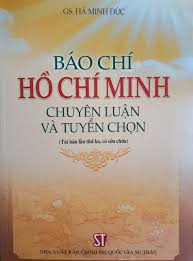
The group of works provides a comprehensive and systematic view of President Ho Chi Minh's literary and journalistic career and a number of issues of literary history, literary theory and art. The works on Ho Chi Minh with profound and highly convincing scientific interpretations have summarized the great contributions of author Ho Chi Minh to the nation's literary and journalistic career.
The book "Ho Chi Minh's literary career" collects works and articles of many periods by Professor Ha Minh Duc, reflecting relatively comprehensively on the literary career of leader Ho Chi Minh.
The work "Ho Chi Minh Journalism (monograph)" researches and introduces the quintessence of Ho Chi Minh's journalistic works, clarifies Ho Chi Minh's ideology through analyzing the basic content and style, the use of language that is subtle, skillful, and rich...
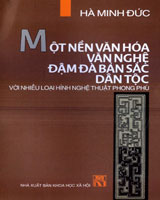
The work "Tu Luc Van Doan - Movement and Author" comprehensively and scientifically evaluates the position and contributions of the Tu Luc Van Doan group and the romantic literary movement.
The book “A cultural and artistic foundation imbued with national identity with many rich art forms” studies Vietnamese culture based on the Party’s thesis of building an advanced and national culture and art foundation and developing it with many rich forms. The work demonstrates the great advantages of the country’s cultural and artistic foundation, in which, the discussion of intelligence and creative thinking is most prominent in the literary field.
* Author: Professor, People's Teacher Ha Minh Duc
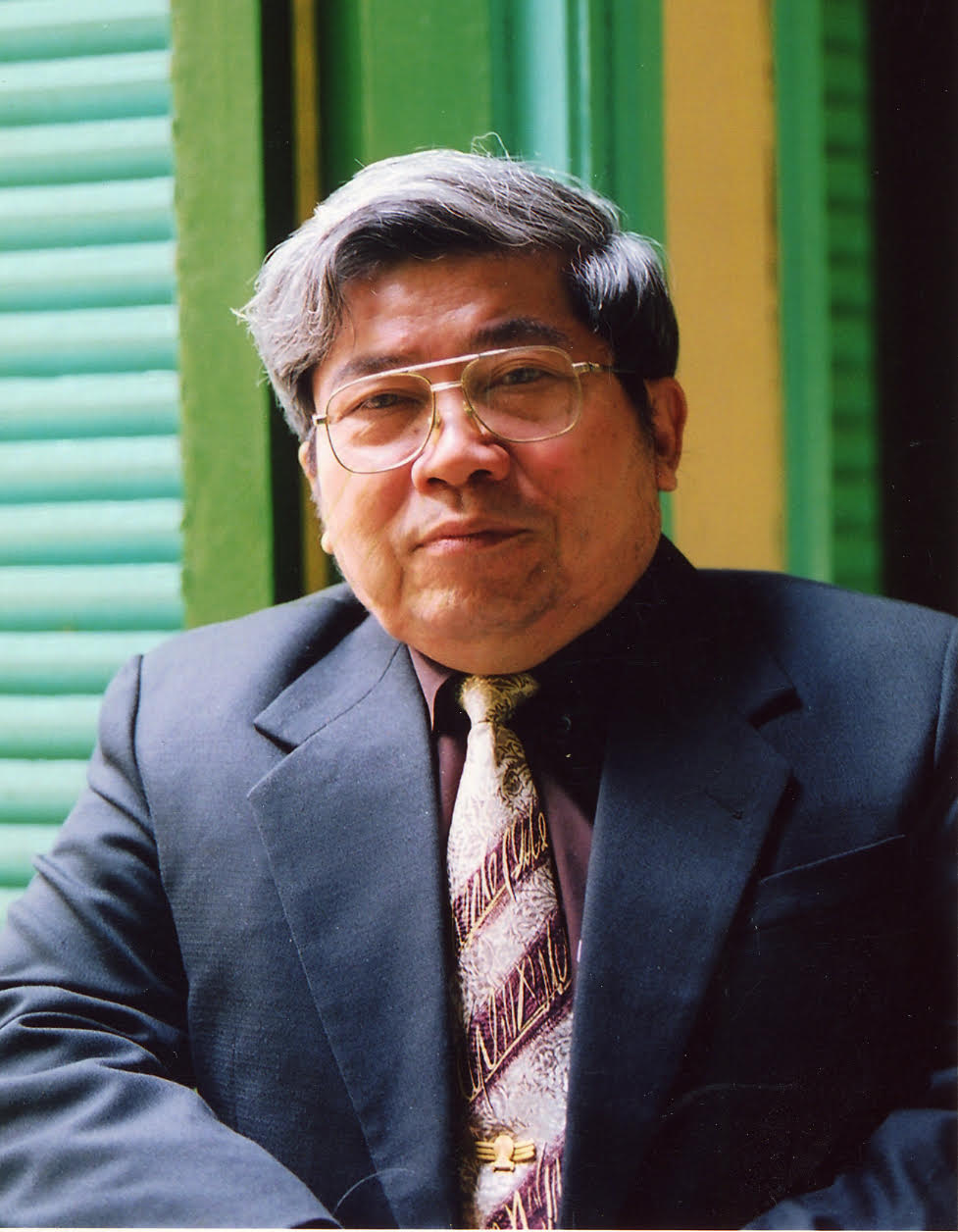
Year of birth: 1935; Hometown: Thanh Hoa; Graduated with a Bachelor's degree in Literature from Hanoi Pedagogical University in 1958; Recognized as Professor in 1991; Awarded the title of Meritorious Teacher in 1991; Awarded the title of People's Teacher in 2000.
Working time at the School: 1957 - 2005; Working unit: Faculty of Philology (Hanoi University of Science), then Faculty of Literature (University of Social Sciences and Humanities) (1960-2005), Faculty of Journalism and Communication (University of Social Sciences and Humanities) (1990-2003).
Management positions: Vice Head of the Faculty of Philology, Hanoi National University (1987-1988), First Head of the Faculty of Journalism and Communication (University of Social Sciences and Humanities, VNU) (1990-2000), Director of the Institute of Literature, Editor-in-ChiefLiterary Magazine(1995 - 2003).
Main research directions: Theory of literature and art; Modern Vietnamese literature from 1930 to the end of the century; Theory of practical cultural development of Vietnam.
Typical scientific works:MaleCao is an excellent realist writer.Culture Publishing House, 1961;Poetry and some issues in modern Vietnamese poetry (theory).Social Sciences Publishing House, 1874 - 1997 - 1998;President Ho Chi Minh - Great poet of the nation,Social Sciences Publishing House 1979;C.Mac - Ph.Engels - V.Lenin and some issues of literary theory.Truth Publishing House, 1982 - 1995 - 2000;Ho Chi Minh - journalist.National Political Publishing House, 2000;A cultural and artistic background imbued with national identity with many rich art forms., Social Sciences Publishing House, 2005;Self-Reliant Literary Group - Movements and Authors,Education Publishing House, 2007;A golden generation in modern Vietnamese poetry,Thuan Hoa Publishing House, 2013;Ho Chi Minh's work - Handbook of the Vietnamese Revolution,Hanoi National University Publishing House, 2014;Talent and Status (notes),National Political Publishing House, 2014;A Thousand Miles Away in a Foreign Land (Travel Notes)Education Publishing House, 2015.
11.ProjectVietnamese History and Culture - Access to Parts, Ho Chi Minh Prize for Science and Technology 2017
* Vietnamese History and Culture – Partial Approachis a research work with a scientific summary of some basic issues of Vietnamese history and culture, especially the ancient and medieval periods. The work does not systematically study the entire history and culture of Vietnam, but approaches deeply into some basic contents in the direction of approaching historical science with other sciences in order to draw valuable conclusions serving scientific research and practical applications today. Based on the limitations in previous historical research and perception, the author presents the viewpoint on the multi-linear, whole and comprehensive nature of Vietnamese history. The specific issues mentioned are: About the centers of civilization and ancient States on the territory of Vietnam, the historical turning point in the first half of the 10th century, the transition from the late Tran to the early Le, the victory and failure of Tay Son...
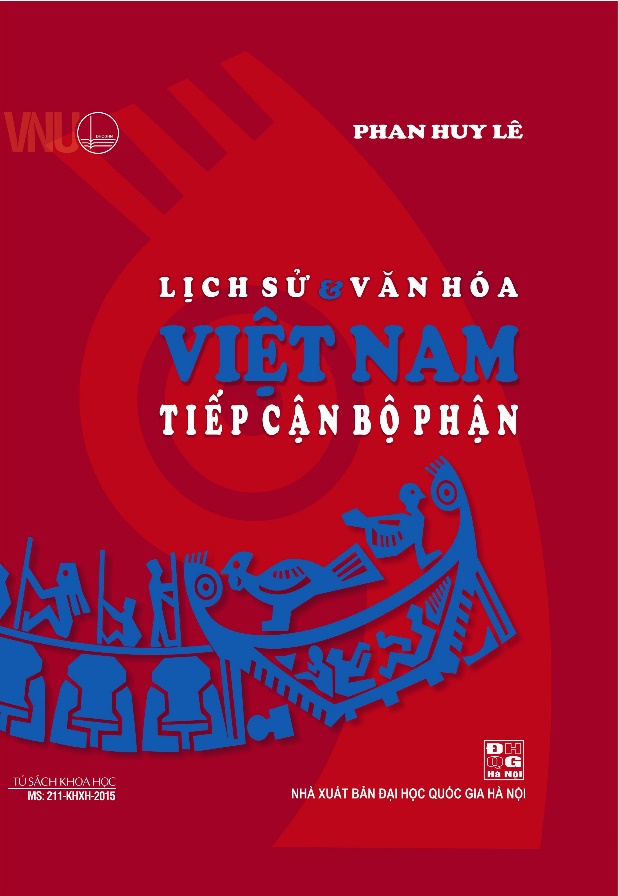
* Author: Professor, People's Teacher Phan Huy Le (1934-2018)
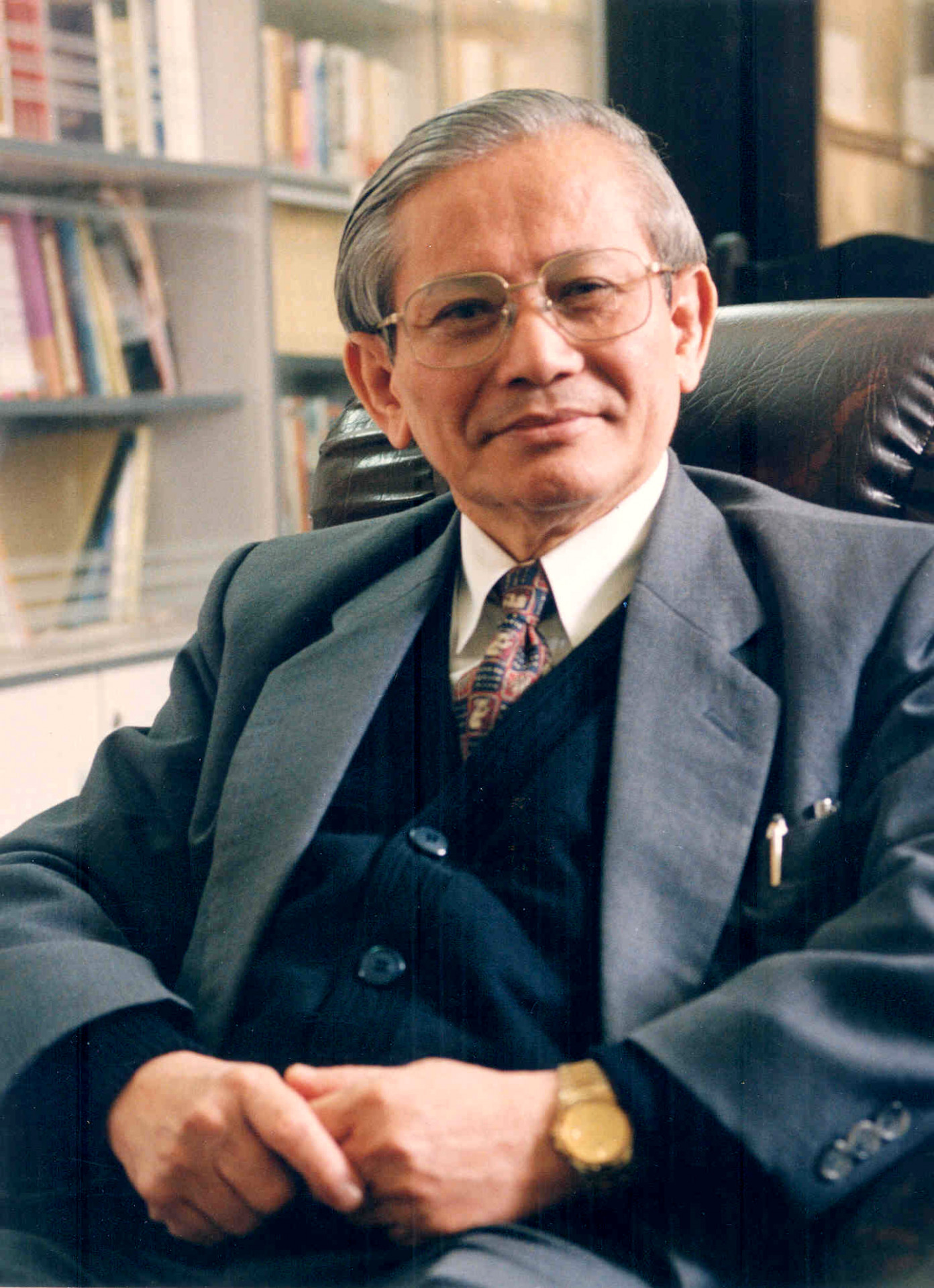
Hometown: Ha Tinh; Graduated from Hanoi Pedagogical University in 1956; Major: Ancient and Medieval Vietnamese History; Recognized as Professor in 1980; Awarded the title of Meritorious Teacher in 1988; Awarded the title of People's Teacher in 1994; Awarded the title of Foreign Correspondent of the Academy of Inscriptions and Fine Arts of the French Academy in 2011; Kukuoka International Prize for Asian Culture, Japan (1996); Order of Academic Palms of the French Government (2002).
Time working at the School: 1956 - 2004; Working unit: Department of Ancient and Medieval Vietnamese History, Faculty of History, Faculty of Oriental Studies.
Management position: Head of the Department of Vietnamese Ancient and Medieval History, Faculty of History, Head of the Faculty of Oriental Studies (1993-2000), President of the Vietnam Historical Science Association (1988 to present).
Main research directions: History of resistance against foreign invaders, History and cultural history of Vietnam, Socio-economic history of Vietnam.
Typical scientific works and awards:History of Vietnamese feudal regime, vol. 2, Education Publishing House, Hanoi, 1960; second printing, 1962;Lam Son Uprising(co-author), Social Sciences Publishing House, Hanoi, 1969; fourth printing, People's Army Publishing House, Hanoi, 2005;Return to the origin, 2 volumes, The Gioi Publishing House, Hanoi, 1998-1999;Vietnamese History and Culture, Departmental Approach, Education Publishing House, Hanoi, 2007; second printing, World Publishing House, Hanoi, 2012;History of Vietnam(editor-in-chief), vol. I+II, Education Publishing House, Hanoi, 2012.
Author:USSH